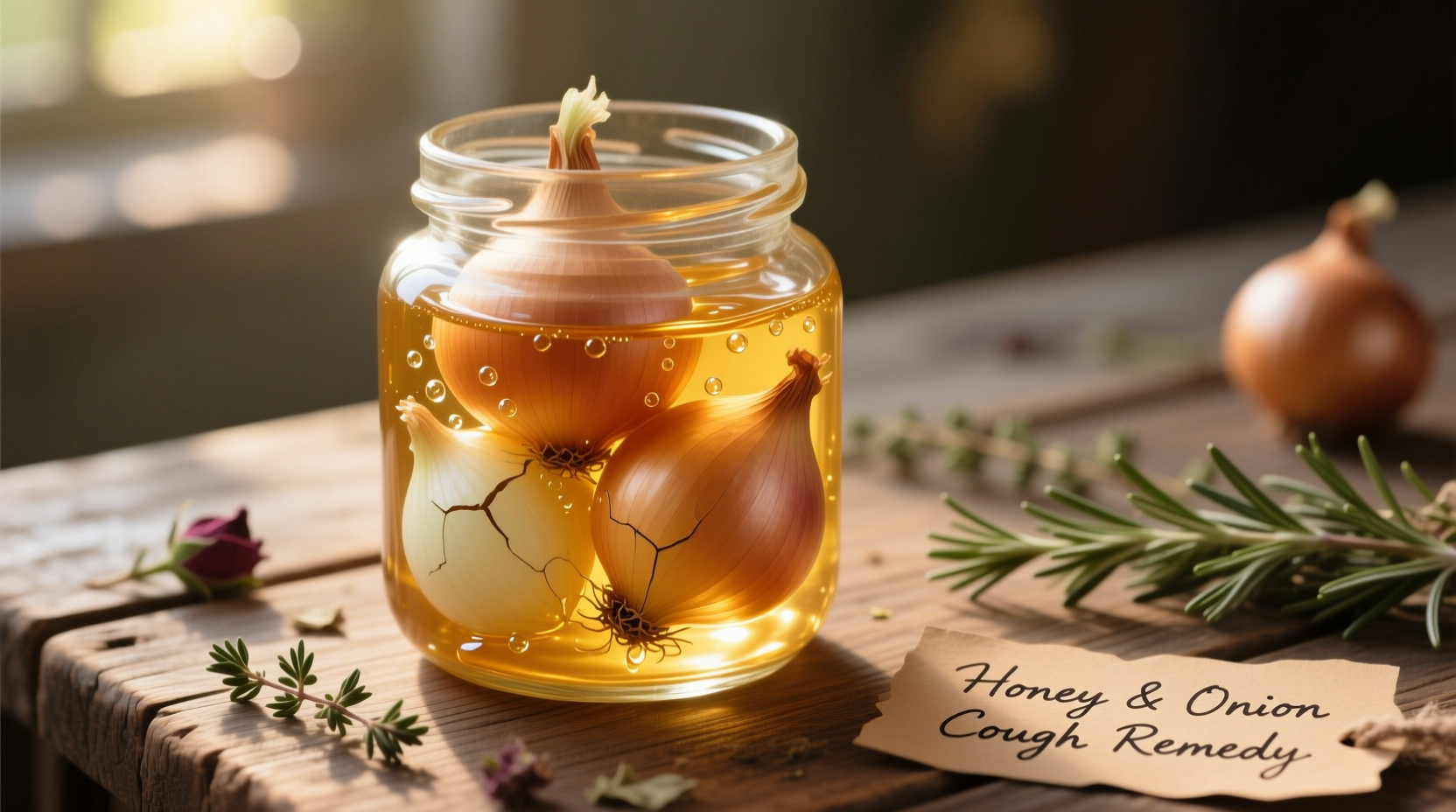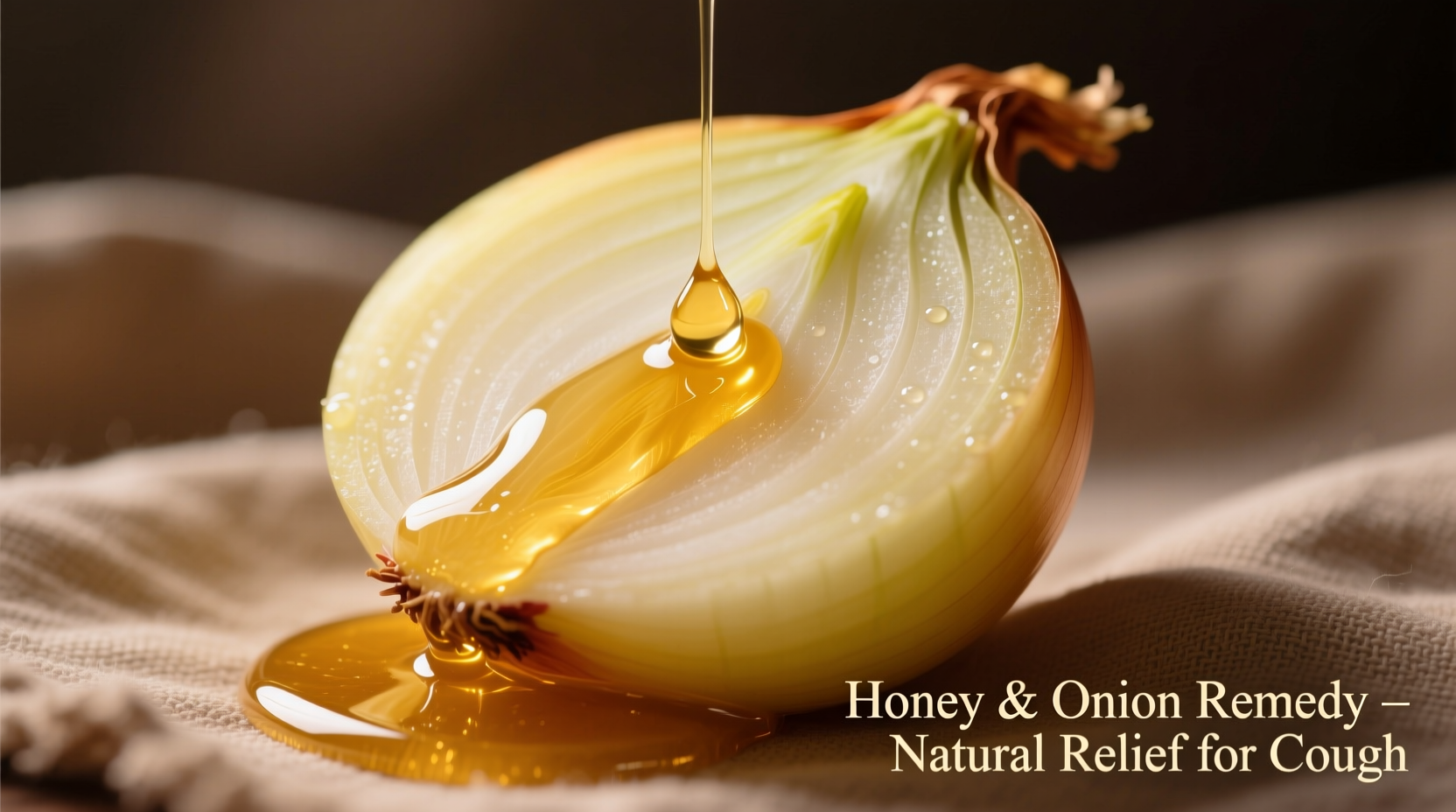When that persistent cough keeps you or your child awake at night, you want relief that's both safe and effective. The onion with honey for cough remedy has been passed down through generations as a natural solution, but does it actually work? This comprehensive guide separates fact from folklore, providing evidence-based information on preparing and using this traditional remedy safely and effectively.
What Science Says About Honey for Cough Relief
Unlike many home remedies, honey has substantial scientific backing for cough relief. According to a comprehensive review published in the Journal of American Family Physician, honey outperforms placebo and some over-the-counter medications for reducing nighttime coughing and improving sleep in children with upper respiratory infections.
The American Academy of Pediatrics recommends honey as a first-line treatment for cough in children over 1 year old, noting it's safer than many OTC medications. For adults, honey's thick consistency coats irritated throat tissues while its natural antioxidants may help reduce inflammation.
Onions: Traditional Use vs. Scientific Evidence
While honey has strong evidence, onions' role in cough remedies relies more on traditional use than modern research. Onions contain quercetin and other compounds with potential antimicrobial properties. Historical records show onion-based remedies were common in European folk medicine dating back to the 16th century.
| Remedy Component | Scientific Evidence | Traditional Use Duration | Recommended For |
|---|---|---|---|
| Honey | Strong clinical evidence | Thousands of years | Children 1+ and adults |
| Onions | Limited laboratory studies | Centuries | Adults and children 2+ |
| OTC Cough Medicines | Mixed evidence, potential side effects | Less than 100 years | Adults only (generally) |
How to Prepare Onion Honey Cough Syrup Properly
Creating an effective onion and honey cough remedy requires proper technique to maximize potential benefits while ensuring safety:
- Peel and thinly slice one medium yellow onion
- Place slices in a clean glass jar
- Cover completely with raw, unprocessed honey (about 1/2 cup)
- Cover jar and let sit at room temperature for 4-6 hours
- Strain the liquid into a clean container
The resulting syrup contains onion compounds extracted by the honey. For best results when using onion honey for dry cough, take 1-2 teaspoons as needed. Adults can take this every 3-4 hours while children over 2 should receive half doses.

When This Remedy Works Best (And When It Doesn't)
Understanding the limitations of onion and honey for cough is crucial for safe use. This natural remedy shows most promise for:
- Mild, dry coughs from colds or allergies
- Nighttime coughing that disrupts sleep
- Early-stage respiratory infections
It's less effective or inappropriate for:
- Coughs with thick mucus (may worsen congestion)
- Coughs lasting more than 2 weeks
- Coughs accompanied by high fever or difficulty breathing
- Children under 1 year (honey risk)
Safety First: Important Considerations
While generally safe, the onion with honey cough treatment has important safety boundaries:
Never give honey to infants under 12 months due to botulism risk. The Centers for Disease Control and Prevention (CDC) clearly states that honey can contain spores of Clostridium botulinum that infants' immature digestive systems cannot handle.
Some children may experience mild digestive upset from onions. Start with small amounts to assess tolerance. People with honey allergies should avoid this remedy entirely.
When to Consult a Healthcare Professional
Natural remedies like onion honey syrup for cough should complement—not replace—professional medical care. Seek medical attention if:
- Cough persists longer than 10-14 days
- Fever exceeds 102°F (38.9°C)
- Difficulty breathing or wheezing occurs
- Cough produces blood-tinged mucus
- Child appears lethargic or dehydrated
The Mayo Clinic emphasizes that while home remedies can provide symptomatic relief, proper diagnosis of underlying conditions is essential for effective treatment.
Maximizing Your Natural Cough Relief Strategy
For the best results with onion and honey remedy for cough, consider these evidence-based tips:
- Use raw, unprocessed honey for maximum potential benefits
- Take the remedy 30 minutes before bedtime for nighttime cough relief
- Stay hydrated with warm fluids throughout the day
- Use a humidifier in your bedroom while sleeping
- Combine with steam inhalation for additional relief
Remember that this traditional onion and honey cough treatment works best as part of a comprehensive approach to respiratory wellness, not as a standalone solution for serious conditions.











 浙公网安备
33010002000092号
浙公网安备
33010002000092号 浙B2-20120091-4
浙B2-20120091-4